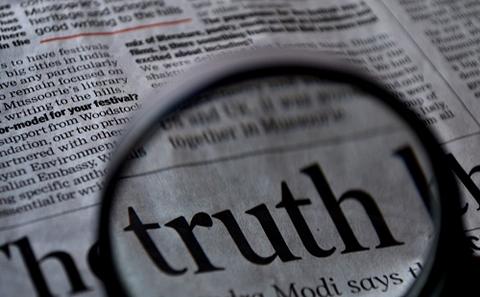Truths and Fake News Study Day Event

- Time:
- 10:00 - 16:00
- Date:
- 4 November 2017
- Venue:
- Avenue Campus, University of Southampton, SO17 1BF
For more information regarding this event, please email Lifelong Learning at lifelonglearning@southampton.ac.uk .
Event details
We will be holding a one-day cultural event on Saturday 4 November 2017 consisting of a series of short talks led by experts from within Philosophy at Southampton.
What is true? How can we know it? What should we do when we have deep disagreements with others about what the truth is? To what extent should we be held accountable for the things we believe or say if they are mistaken? Philosophers are interested in questions like these, which are at once abstract questions about the nature of reality and the fallibility of human access to it, but also practical questions of great importance: our views about the world make such a big difference to how we behave, and in turn the mistakes we make can have very real consequences. For example, disagreements about gun control, or climate change, or Brexit, get heated precisely because each side thinks that the mistakes made by the other will have significant consequences. How should we respond to intellectual disagreements like these?
The focus of this study day are the rules of belief, debate, and disagreement. It will explore some of the issues surrounding how we form our opinions, how we share our opinions, and how we compare our opinions with others.
Proposed programme
| Time | |
|---|---|
| 09:30 | Registration |
| 10:00 | Coffee |
| 10:10 | Welcome |
| 10:15 |
Plato vs. the Sophists by Professor Chris Janaway, University of Southampton The Sophists were an important intellectual force in the Greek world in the 5th century BCE. They taught people techniques for winning arguments and swaying the emotions. One Sophistic theory is that truth is relative to an individual or a particular community. Plato found this a dangerous idea: his counter-arguments in favour of absolute truths about values and the nature of reality were foundational for Western philosophy. |
| 11:15 |
Coffee |
| 11:30 |
Should we care that our beliefs are true? by Professor Genia Schönbaumsfeld, University of Southampton It’s sometimes thought that belief is a purely personal matter not subject to any constraints or norms – that I can believe, in effect, whatever I like. This talk critically examines this idea by considering the question whether truth is a norm for belief. |
| 12:30 |
Lunch |
| 13:30 |
The norms of assertion by Professor Daniel Whiting, University of Southampton A common complaint about recent political discourse is that it is marked by a lack of concern for the facts. In the post-truth era, the complaint continues, participants in the relevant debates make claims or assertions which are not supported by evidence, knowledge, or expertise. This talk will ask when it is legitimate to assert that something is the case. What are the standards for acceptable assertion? |
| 14:30 |
Coffee |
| 14:45 |
What can they be thinking? by Dr Will McNeill, University of Southampton Often, we agree with what others say. At other times, we disagree with what they say, but we can at least can see where they are coming from and how they came to that point of view. But at other times, people seem to say things that seem to us to be deeply mistaken. How do we go about reconstructing what others are thinking when their attitudes seem so opposed to ours? |
| 15:45 |
General questions and discussions |
| 16:00 |
Event ends |